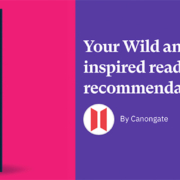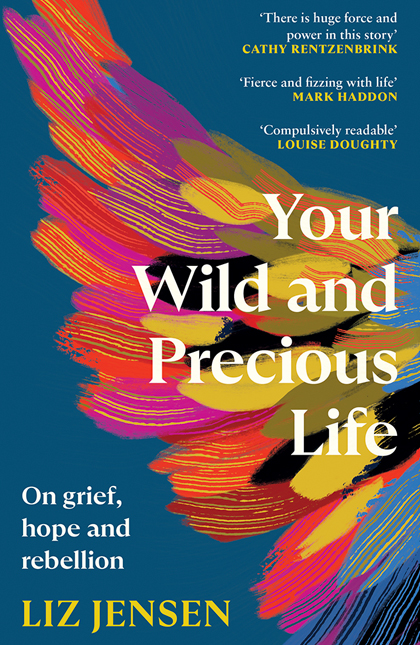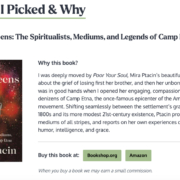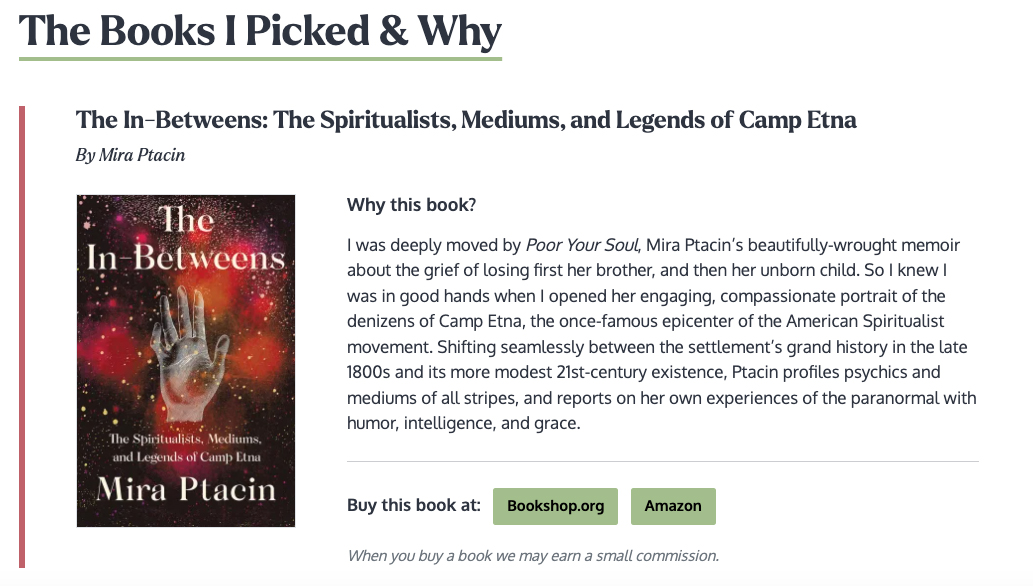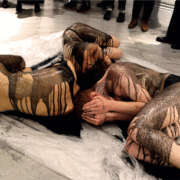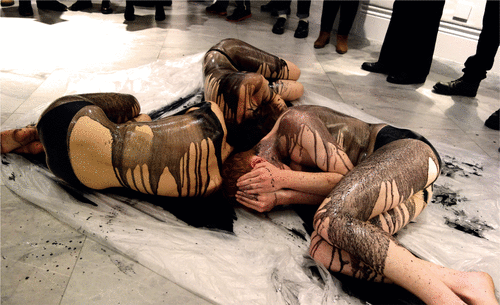
Dear Great Britain, aka the United Kingdom, issuer of my passport, former colonial power, home of Sir David Attenborough and manufacturer of good crisps, Royal scandals, comedy shows and inventor of the word “sorry”-
So, you got Brexit done.
But are you great? Are you united?
As someone born within your shores I am supposed to have acquired a stiff upper lip but after the 2016 referendum, while my beloved 85-year-old uncle – a diehard Leaver – celebrated with a glass of Laphroaig, I cried.
“I’ve been waiting for this for 40 years,” my uncle told the family, triumphant.
How can you love someone whose political views you cannot share, and whose flawed political choices will be felt by generations to come?
Ask any Brit.
You keep on loving them but you shelve the issues that divide you. Call us konfliktsky, but we’ve all learned to avoid discussing Brexit if there’s a chance someone’s going to end up shouting “you just don’t get it!” and thumping a table.
And our uncle was old: what was the point? So we turned the other cheek, and entered the first three stages of Brexit grief: denial, anger and bargaining, hoping against hope for a second referendum that would stop you jumping down the toilet of history and flushing. We signed online petitions to save you from your own worst impulses, and listened to sober warnings from manufacturers, economists, farmers, scientists, and health experts about the mayhem to come.
But by then, just as in America, “expert” had become a dirty word, and false information was being openly, shamelessly, presented as fact. People were energized by the idea of change. A big departure from the status quo is always dramatic. And slamming doors is fun.
Who doesn’t like the kick of feeling curmudgeonly and righteous and powerful and brave? I get it.
We confronted our own door-slamming uncle. Why was he wishing this on his grandchildren?
He was unrepentant.
“Bureaucracy,” he said. “Corruption.” He took the long view.
“It’ll all work out,” he said.
But not for him.
I cried at his funeral, but I cried more in December 2019 when a majority of my compatriots elected the huckster who will always be Johnson to me, and never “Boris”. (By the way, a little warning in your ear: it’s his maverick strategist, Dominic Cummings, you should worry about most. He is the architect of the regime that is now taking hold, and that will change the course of your history.)
The fourth stage of Brexit grief set in. The depression we felt was the type familiar to all whose relationship has broken down.
Britain, you made me cry.
But what do the Johnson-Cummings duo care about the emotions of citizens who don’t matter to them? They have a game of hardball to play.
As another hardball-player, Stalin, used to say: You have to break eggs to make an omelette.
Britain, I don’t know you any more. You’ve changed.
You’re not the exciting, diverse, open-minded, progressive, multi-cultural, friendly, jocular Britain we know from your vibrant cities.
Britain, you’ve become a stranger.
Or was this the real you all along?
All your citizens have their own relationship to Europe, even if it’s an absence of a relationship, or an antipathy. Theresa May may have been against leaving Europe – but when she declared “A citizen of the world is a citizen of nowhere” she was displaying the parochialism that fuelled Brexit. That Fortress Britain parochialism has prevailed. And Europe is “over there”.
Not to the 48 percent who voted Remain. Or the 1.5 million Britons living in EU countries, more than 18,000 of them here in Denmark.
Or to me.
Britain, I’m hurting.
You revoked our EU citizenship against my will.
****
If my own personal attachment to Europe is powerful, it’s because my children and I wouldn’t be here without it.
The backpacker romance story goes like this: boy from one country meets girl from another country in a third country. If things go well, they have babies.
My parents – an Anglo-Moroccan civil servant and an aspiring Danish writer – met in the 1950s in a youth hostel in the French town of Avignon. In Oxfordshire, where we grew up, our mother taught us to sing “Sur le pont d’Avignon, on y danse.”
Weirdly enough (or perhaps not weirdly at all, perhaps in fact obeying some new divine family rule of procreation), my sister and brother both married foreigners who they met in France: she a Chadian, he a Peruvian. My first marriage was to a Franco-Czech Briton; my second to a Dane I met in Canada.
It’s how we roll.
Thirty years ago, when my elder son was born in Lyon, he became a dual French and British citizen. The birth announcement read:
Bebe: Fabrique en Europe.
That’s how proud his father and I were to have a European baby. That baby now lives in Germany with his Spanish girlfriend, and considers himself French.
Being a child of Europe meant something to us.
It means something still.
*****
A friend recently overheard two elderly ladies in Yorkshire discussing Brexit. They’d voted leave, and they were excited about the future. They agreed that Britain was showing Europe “where to stick its regulation cucumbers”.
One asked, excitedly: “Do you think they’ll bring back the farthing?”
The farthing was a currency belonging to the non-decimal era of guineas, pounds, shillings, and pence. The farthing was Britain’s smallest and cutest coin. Worth a quarter of a penny and the size of an øre, it was withdrawn in 1961, when the Yorkshire-women would have been teenagers.
That’s how far back they wanted to go.
Put the great back in Great Britain was an inspired slogan. It got people where the Brexiters wanted them: in the land of fuzzy nostalgia for a semi-imagined past. In the land of the farthings. Like Make America Great Again, it depended on the most modest of its words to do the emotional work.
Back.
Again.
Back to what, and when?
*****
There’s no questioning an island. Surrounded by the blue of the sea just as the black of space surrounds Earth, an island’s geographical boundaries are indisputable. It is a world in miniature. No wonder so much fiction is set on islands. They are the perfect setting for stories of conquest, isolation, experiment, independence, quarantine, purity, escape, exceptionalism.
They can be anything you want them to be.
And what about you, Britain?
At the moment, I can’t help thinking of the Andaman Islands, whose natives, fearing attack, shot arrows at the rescue planes coming to help them after the 2005 tsunami.
But you will get no rescue planes. The Johnson-Cummings regime has shot them down in advance. You have until December 31st to secure an EU trade deal, but they have declared their refusal to extend negotiations beyond that.
Brexit, come Hell or high water.
Brexit, do or die.
Ah, the power of words. The power of stories. From the time you were first populated by humankind, you’ve been a tangle of narratives made up of history, folklore, culture, geography, politics, religion, and myth.
You’re the Britain of Beowulf and the Great British Bakeoff, Camelot and Coronation Street. Of pomp and circumstance and badger-baiting and silly hats; of Shakespeare and Harry Potter; of Cromwell and Jack the Ripper and double-decker buses; of fish and chips, Agatha Christie, Empire, the Industrial Revolution, the Blitz, the Beatles: we could all name a thousand things. You’re an island, but you’re also – like all notions of nationality – a fiction.
You’re whatever anyone wants you to be, squared.
****
One of the things I love most about you was that you’ve always been spacious enough to absorb and assimilate new people, ideas, and cultures and make them your own. And you have always contained conflicting identity narratives. But what alarms me now is how these identity narratives have become more violently opposed than I have ever seen them in my lifetime.
Will it really “all work out” as my uncle assured us?
I don’t know. Nobody does. But since I am a writer of speculative fiction, and therefore an amateur futurologist, I will make a few guesses about the decade to come.
The Johnson-Cummings regime will become ever more ruthless and authoritarian. There will be an ongoing erosion of democracy, the emergence of home-grown neo-fascinsm, and a polarization unseen in your history.
Your new myths will be spun fast and energetically. With most of the British billionaire-owned press under Tory influence, and the BBC swiftly and strategically brought to its knees, the Johnson/Cummings government will effect a massive re-branding exercise. It will be cheap, too: they can rely on most of the popular media voluntarily taking on task of shifting hearts and minds. In the months to come, buoyed by their election triumph, your government will ruthlessly follow the Trump playbook, cutting oxygen from the institutions designed to keep the nation fair and safe, and to ensure that no ruler is above the law.
Alongside that, what Margaret Thatcher started when she infamously claimed there was “no such thing as society” will be brought to its logical conclusion. The merciless dismantling will start with Parliament. With the court system. With public service broadcasting. With the integrity of the NHS. London will become a key money-laundering hub of the financial world, a Cayman Islands a few miles from Europe.
When the deadline of 31st December comes around, there will still be no trade deal with the EU. But instead of being a source of shame, it will be spun in such a way as to become a source of national pride: you’re the proud, plucky little island state that has always punched above its weight, surrounded by envious foreigners. The day will be marked by wild Fuck Europe parties, fireworks, and celebrations. You’ll have finally, definitively, made a clean break and got Brexit done.
And because this narrative is emotional, it will be effective. It will energize a proportion of your inhabitants as effectively as World War Two, the heyday of Johnson’s hero, Churchill.
And because by now you’ll be in catastrophe mode, this neo-Churchillianism will take on a life of its own. We won’t fight “them” on the beaches, but in the shopping aisles. If Italian tomatoes are too expensive, we’ll dig “Victory gardens” as we did in wartime. And we’ll eat American chlorinated chicken, free at last from the “tyranny” of food standards.
Thanks to the weak pound and some smart Merrie Olde England branding, tourists will flock in. And what will they see? First and foremost, the aggressive pedaling of tourist tat, and alongside it the prevalence of the Union Jack. But this sudden blossoming of red, white and blue will not be hyggeligt: unlike the Danes, your citizens aren’t born with a deep affection for their national flag, so the epidemic will be an overt signalling of allegiance to Brexitism. Just as the English flag (the Cross of St George) is associated with the far right, the Union Jack will be the chosen identifier of aggressively unrepentant Leavers. By the same token, “Disloyalty” and “treachery” will be applied to those who dare to voice dissent in public.
Alongside that, nativism will become a thing. Brexit was never just about Europe. It was a big NO to immigrants in general – even though some of those immigrants themselves voted leave. And because part of the great Brexit con was to conflate EU citizens with brown people, the “true” Britishness of dark-skinned British citizens will be increasingly questioned. More than ever, people of colour and/or with foreign accents will be told to “go back to your own country”. Racial abuse and violence will continue unchecked. (And should anyone be in doubt about the depth of British racism, I give them Meghan Markle).
Meanwhile, scientific collaborations with the EU will dry up, and the “brain drain” that began in 2016 will accelerate because the young and the educated want a decent future.
Your cultural love affair with the United States will re-ignite and strengthen. Europe was just a flirt: this is the real thing. Perhaps you might even end up as a satellite state? This I can imagine too, in the version of you that is left to coming generations by the new regime. Because if Europe is your past, a declining, paranoid America will be a large part of your future.
In anticipation of this, the Johnson-Cummings spin machine will continue to push the idea that because of the “special relationship” you’ll get shiny new trans-Atlantic trade deals. But before they get too excited, they should re-read The Art of the Deal. In it, Donald J Trump writes: “My style of deal-making is quite simple and straightforward. I aim very high and then I just keep pushing and pushing to get what I want.”
Every deal has a winner and a loser. Is the loser likely to be Trump?
You can fool some people some of the time, but not all the people all of the time. When more and more of your citizens realize they have been sold cynical, misanthropic neoliberalism dressed up as a defense of British identity, you’ll see an intensification of the civil war of narratives about what kind of country you are, and what you want to be.
And the dissenting political currents? I don’t know. I’ve been burned by my own wishful thinking these past three and a half years. In December’s election, while all the Tories needed to do to win was to keep saying Get Brexit Done, Jeremy Corbyn’s fatally-split Labour party didn’t even have a proper slogan.
****
With my amateur futurologist’s hat on again, I make one final prediction.
That after Brexit, the most important issue of all will force its way in and belatedly claim all your energy and attention: the issue that was too big to see. It was there all along, looming over us, hiding in plain sight. When we were all obsessed with Brexit the climate emergency seemed small and far away.
Now it is huge, and upon us. And we were looking the other way.
During Bill Clinton’s 1992 presidential campaign, he was said to have a sign over his desk reminding him of the most important issue facing most Americans: IT’S THE ECONOMY, STUPID.
In the years to come I see you stumbling along a path with no clear way forward. Written above you in the skies, and in the skies of the entire world, will be a huge sign reminding your rulers of the existential problem that matters most.
IT’S THE CLIMATE, STUPID.
Because there will indeed be Hell and high water, do or die.
If I sound depressed about you, Britain, it’s because I’m still deep in Brexit grief.
So is there anything at all on the plus side?
Yes. I can feel it.
It’s there in Trump’s America and it’s already manifesting within your shores: a new kindness and concern in the air among those who are alarmed by the direction you are taking. A comradeship among dissenters; a sense of collective responsibility; a channeling of Michelle Obama’s words: When they go low, we go high.
And a resolve among those who care about the young and the coming generations to take a “long view” far longer than my uncle’s, and act on it.
So I refuse to give up hope, Britain, however hopeless you make me feel.
It was nice knowing you.
Or thinking I did.
Let’s meet again one day, in a more generous place.

